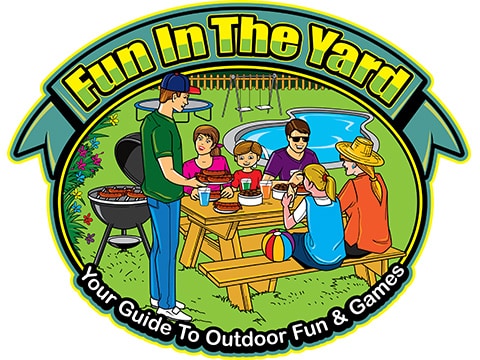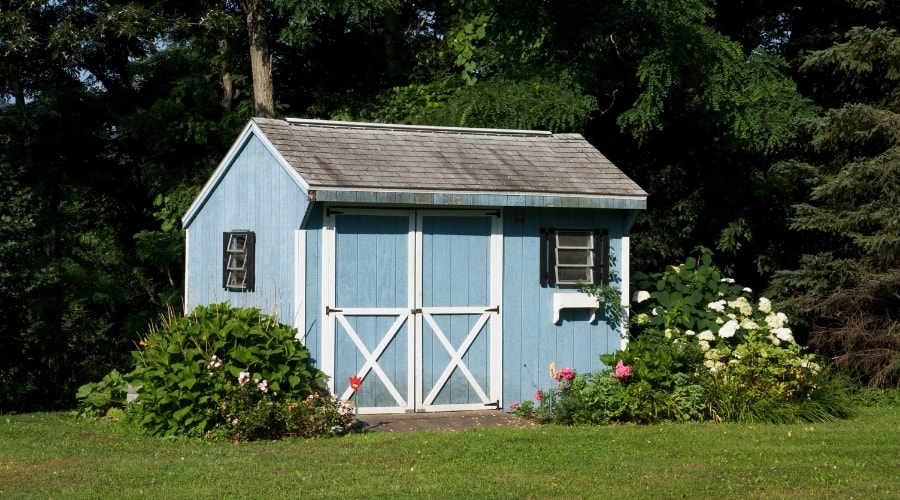The tiny-house movement has made small space living popular, but it also leads to many questions about what a house is and what can become a home.
One look at the general shape, and you may find yourself wondering if you can live in a shed legally. The answer is a bit convoluted, but it depends on where you are and how modified the shed is.
Table of Contents
Can You Live In A Shed On Your Own Property
In most states it is illegal to live in a shed because they do not meet zoning and building codes as safe housing. Each state, county, and city have unique regulations on what constitutes legal housing. While private property owners can get building permits, they are still subject to the laws of both the international and local building codes.
Council Regulations For Living In A Shed
Whether your council is a local Australian council, a British council, or an American city council, the regulations for your area are decided by this group.
In Australia, a shed can be a temporary shelter. However, you have to apply to the council for a special permit. That permit will give you the specific duration and terms of your shed-living situation.
In the UK, a garden shed is specifically forbidden as a human habitation. These sheds don’t meet the basic minimum standards, such as insulation for safe living space. However, there are other shed-like structures you can build to code.
In the USA, the shed-debate entirely depends on where you live. For example, you cannot get permission for shed living in Tennessee.
According to SevierNewsMessenger, ready-removable structures, such as sheds, are not legal for any habitation. Even temporary emergency housing has a higher standard.
Is There A Penalty For Living In A Shed
If your shed is not allowed in your area or fails to meet the minimum standards for habitability, there are several possible outcomes.
In some cases, you could get arrested or have to pay to remove a condemned structure. Below are the most common penalties if you get caught living in a shed without appropriate permits.
- Suppose you live in a shed in an area with a Homeowners Association. They can require you to take the shed down, move out or make other changes. Failure to comply means you will lose your property.
- When you live in a shed that doesn’t meet the minimum standards for habitation, you will be notified and required to modify the shed before you can move back in. Refusing to do so can get your shed condemned by the housing authority.
- Perhaps you live in an illegal shed on someone else’s property. You can be removed by the police or county sheriff, and the property owner may have their shed condemned. Likewise, they might get a free shed, or you’d have to pay for its removal.
- If you live in a shed and people in the area worry about your healthy and mental stability, they can ask for a wellness check. You could be picked up by local police and remanded to the care of a local psychiatric facility. After you are evaluated and potentially treated, the outcome will vary. The results will differ based on whether the shed is legal to live in and whether you are deemed competent to care for yourself.
Is Living In A Shed Illegal
Assuming you live in an area that allows modified sheds as dwellings, there are significant requirements.
You probably don’t need to worry about the height requirements, but there are hundreds of applicable standards. This is why contractors require a license and expensive insurance.
For example, most sheds lack a second egress, so you’d need a door or window that opens completely for emergencies.
There are specific details regarding water valves and how far stoves and water heaters need to be from walls that the average person doesn’t know about. All of these are tested and verified to help prevent injuries and even accidental death.
In general, things like the thickness and materials of walls, insulation, roofs, and subflooring are all regulated. You will likely need plumbing for sinks, bathing, and a toilet.
Additionally, your windows, electrical system, heating, and cooling all have varying standards based on climate and how much inside space the shed-home has to offer.
You can check out the full text of the International Building Code here.
Is It Legal To Live In A Shed In Florida
You cannot legally live in a shed in Florida. Not only are sheds well below the building standard for homes, but the slabs they are built on lacks an essential element for habitation.
Since there is no vapor barrier under typical shed slabs, they cannot house humans. It’s also a terrible idea. Given Florida’s propensity for flooding and hurricanes, your shed is not a wise choice.
Is It Legal To Live In A Shed In Georgia
As of 2107, Georgia may allow converted sheds as dwellings. Each county has the right to refuse or require you to modify this style of building further.
The Industrialized Buildings Advisory Committee (IBAC) and Department of Community Affairs (DCA) to include both sheds and shipping containers as part of the Georgia Industrialized Buildings (IB) Program.
As a result of that meeting, there are more housing options available to citizens in GA.
Is It Legal To Live In A Shed In Kentucky
At least one couple was issued permits to convert a tractor shed into a home in Kentucky. This type of shed is typically open on one side and allows for hay and vehicle storage.
Unlike many backyard sheds, they did not begin with a tiny structure. The tractor shed in question was already the size of a moderate home.
In KY, the Department of Housing handles most permits and zoning issues. You will have to comply with the IBC and any local Kentucky building codes.
Equally important in the wide-open, mostly flat land around KY, you may also want to add on a tornado shelter.
Is It Legal To Live In A Shed In UK
You cannot live in an as-is garden shed in the UK. Converting these small outdoor buildings into a ‘Granny Annexe,’ you must comply with Building Regulations. Additionally, you’ll need to apply for planning permission.
Homeowners can create an occasional-use space where no one lives full time. You can put in a bed, sofa and similar furniture so long as no one is a resident of the shed.
If you violate the law, the local council’s Building Control or Planning Department will enforce the issue. For a first offense, they will likely give you a fine or require you to stop using the shed as an illegal dwelling.
Can You Legally Live In A Tuff Shed
You can legally live in a Tuff Shed if you live in an area that does not forbid shed conversions. Home Depot sometimes carries a two-story Tuff Shed that lends itself to this readily.
It is essential to understand that you will need to hire a plumbing contractor and other professionals to make most necessary adjustments.
Some smaller Tuff Shed models are not set up for habitation. Choosing a smaller model could mean doing a lot more work.
However, those with windows already included and more open floor plans make outstanding tiny homes.
Helpful Tips To Know About The Laws Of Living In A Shed
Asking whether you can legally live in a shed and creating a legally habitable dwelling is not the same thing.
Prefabricated sheds do not meet building codes for a dwelling anywhere, but you can modify them. Here are four things to keep in mind when looking at building a shed house.
- Do not trust something you read online unless it comes from a .gov website. People are stating opinions as often as not. It is vital to check the actual laws.
- In the city, you need to contact the local housing and zoning board. In the countryside, you may need to speak to the platting and zoning office for regulations.
- Shed or not, any dwelling must meet International Building Codes (IBC) to be considered safe.
- The IBC can change. The current version is from 2018, but the standards are added and modified often.
Final Thoughts
A shed can be the basis for a tiny home in some areas. Moreover, a prefabricated small building makes sense as a starting point.
Sadly, on its own, an uninsulated shed with neither plumbing nor electricity is unlikely to be a legal home. The international building codes were put into place to help create a universal basic standard for human habitation.
Though it may seem unfair that you, as a property owner, cannot build whatever you like, it’s all about safety.

